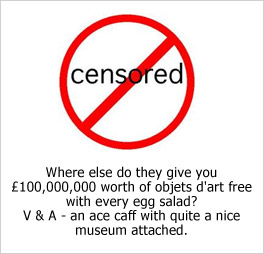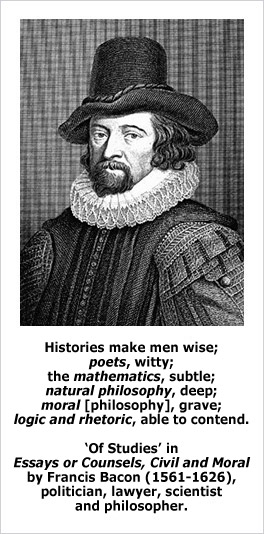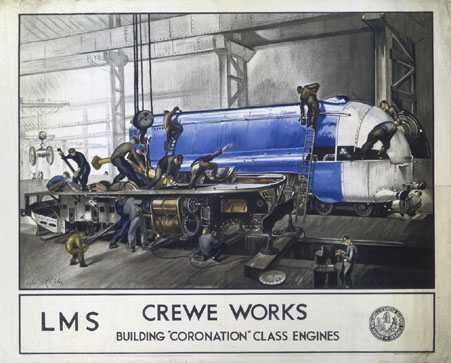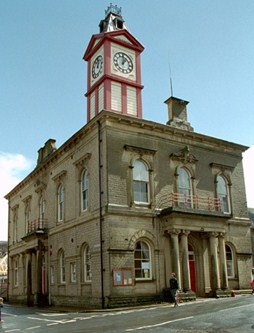MONTHLY BLOG 24, HISTORY AS THE STAPLE OF A CIVIC EDUCATION
If citing, please kindly acknowledge copyright © Penelope J. Corfield (2012)
Politicians have a duty to attend to civics as well as to economics. Indeed, we all do. So talking about whether the study of History is ‘useful’ for the economy is a very partial way of approaching an essential component of human’s collective living. We all need to be rooted in space and time. Politicians should therefore be advocating the study of History as the essential contribution to individual and social connectedness. In a word, civics in the full meaning of the term. Not just learning how to fill in a ballot paper – but learning how communities develop over time, how they cope with conflict and with conflict-resolution, and, incidentally, how they struggle to create truly fair and democratic societies.
Praise of the study of History as a means of learning essential skills is all very well. Lots of useful things are indeed achieved by this means. People learn to evaluate complex sources, to make and debate critical judgments based upon careful assessments of often contradictory evidence, and to understand continuity and change over the long term. So far, so good.
Yet it is seriously inadequate to recommend a subject only in terms of the skills it teaches and not in terms of its core content. It’s like (say) recommending learning to sing in order to strengthen the vocal chords and to improve lung capacity. Or (as the ad agency Saatchi & Saatchi notoriously did in 1988) recommending a visit to the Victoria & Albert Museum in order to enjoy a nice egg salad in its ‘ace caff’ – with some very valuable art objects attached.
 By the way, so notorious has that advertisement become that it is strangely difficult to find the originals image on the web. It seems to have been self-censored by both the Museum and the ad agency – probably in shame.
By the way, so notorious has that advertisement become that it is strangely difficult to find the originals image on the web. It seems to have been self-censored by both the Museum and the ad agency – probably in shame.
When recommending History, there is a crucial Knowledge agenda at stake as well as a supporting Skills agenda. Of course, the two are inextricably linked. Historical skills without historical Knowledge are poorly learned and quickly forgotten. But learning History has a greater and essential value purely in its own right. It is not ‘just’ a route to Skills but a subject of all-encompassing and thrilling importance.
All of human life is there; and all humans need access to this shared reservoir of knowledge about our shared past. People always glean some outline information by one means or another. They pick up myths and assumptions and bits and pieces from their families and communities.
But people learn more and better when they learn systematically: about the history of the country that they live in; and about the comparative history of other countries, both nearby and far away; and about how a myriad of different developments around the world fit into a long-term human history, which includes continuities as well as change.
Needless to say, these perceptions are hardly new. ‘Histories make men wise’, as Francis Bacon long ago observed. Thinkers and doers from classical Greece to Winston Churchill have agreed and recommended its study.
 Why then has the subject matter of History been comparatively undervalued in recent years? It can’t just be the power of the Skills agenda and the influence of ministers fussing about every subject’s contribution to the economy.
Why then has the subject matter of History been comparatively undervalued in recent years? It can’t just be the power of the Skills agenda and the influence of ministers fussing about every subject’s contribution to the economy.
Nor can it be that History teachers are ‘boring’ and that they teach students nothing but the dates of kings, queens and battles. Ofsted report after Ofsted report has stated otherwise. The subject is considered to be generally well and imaginatively conveyed. Moreover, the sizeable number of students choosing to take the subject, even once it has ceased to be compulsory, shows that there is a continuing human urge to understand the human past.
Nonetheless, the public reputation of History as a subject of study is currently poor. It is often dismissed as the ‘dead past’. Why should students need to know about things that have long gone? The pace of technological change in particular seems to point people ‘onwards’, not backwards. What can the experience of the older generation, who notoriously have trouble coping with shiny new gadgets, teach the adept and adaptable young?
Well, there are many answers to such rhetoric.
In the first place, things that are ‘dead’ are not necessarily lacking in interest. It is valuable to stretch the mind to learn about vanished cultures, as some indeed have. Impressively, archaeologists, historians, palaeontologists, biologists and language experts have together discovered much about the long evolution of our own species – often from the skimpiest bits of evidence. It’s a highly relevant story about adaptation and survival, often in hostile climes.
Meanwhile, there is a second answer too. It’s completely fallacious to assume that everything in the past is ‘dead’. Much – very much – survives and develops through time, to create a living history, which embraces everyone alive today. The human genome, for example, is an evolving inheritance from the past. So are the dynamic histories, languages and cultures that we have so variously created.
We need more long-term accounts of how such things continue, evolve and change over the very long term. The recent stress by historians upon close focus studies, looking at one period or great event in depth, has been fruitful. Yet it should not exclude long-term narratives. They help to frame the details and to fit the immediate complexities into bigger pictures. (My own suggestion for a secondary-schools course on ‘The Peopling of Britain’, in which everyone living in Britain has a stake, is published in the November issue of History Today).1 In sum, we all need to learn systematically – and to continue learning – about our own and other people’s histories. It’s a lifetime project, for individuals and for citizens.
• My December Blog will consider further how historians can advance the public case for studying History.
1 P.J. Corfield, ‘Our Island Stories – The Peopling of Britain’, History Today, vol. 62, issue 11 (Nov. 2012), pp. 52-3.
For further discussion, see Twitter
To read other discussion-points, please click here
To download Monthly Blog 24 please click here


